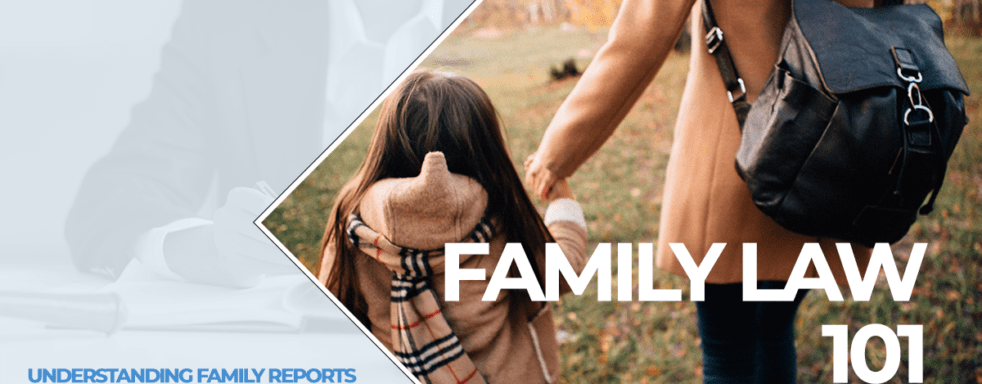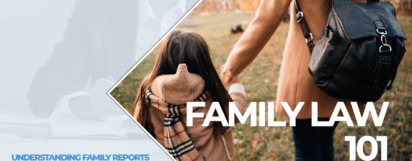-
Freeman Family Law
Operating Since 1992

The New Federal Circuit and Family Court of Australia and Key Changes to Procedure
Don’t panic! The law itself hasn’t changed – just the structure of the Court and its procedural requirements. On 1 September 2021, the two formerly separate Family Court and Federal Circuit Courts were amalgamated into one new court: the Federal Circuit and Family Court of Australia. The new Federal Circuit and Family Court of Australia is comprised of two divisions:
What’s behind the change?
The Federal Government has been discussing implementing changes to the existing family law system for some time. Reforms have largely been required in order to address the extensive backlogs within the system, which have seen some litigants forced to wait years for an outcome. It is intended that the new system will reduce delays and increase efficiency.
The New Case Management Pathway
The new system places a strong emphasis on dispute resolution, and provides a new case management pathway. The Court’s overarching purpose is to facilitate swift resolution of disputes as quickly and cost effectively as possible. Under the new system, parties are now required to attend mediation or other dispute resolution opportunities before they may issue proceedings on property matters.
New cases will now all be filed in Division 2 (which is equivalent to the former Federal Circuit Court). Cases will then be triaged by Registrars to the appropriate division. More complicated cases, or those that meet certain criteria, may be transferred to Division 1 (which is equivalent to the former Family Court).
Limitations
The intention of the new system is that parties will resolve their disputes outside of the Court, which will in turn free up
resources and court time for those who genuinely require it. In some cases, mediation is already a prerequisite,
including in parenting matters. However, there will, of course, be situations in which pre-trial resolution will not be achievable. If a matter cannot be resolved at mediation, then the parties may proceed to Court.
The Process
A First Court Event, which will be listed (wherever possible) on a date between 1 and 2 months from the date of commencement of a proceeding; The listing pathway for a new case will involve the following events and timelines:
In short, the new system aims to ensure that relatively uncomplicated cases on the above case pathway are concluded within 12 months of filing. The length of time taken for the delivery of judgements should also be reduced. For many litigants who have been involved in family law proceedings, this will be a welcome change which looks to promise a significant improvement to the delays experienced in the former system.
Will it work?
So, will the new court deliver? Will clients save time and legal costs? There has already been a diverse range of commentary on the suitability of the new system. Many experts and interest groups say that, while the intention behind the reform is commendable, in reality there will be little practical change experienced by litigants without increased resources and more sitting Judges and Registrars to deal with the case backlog. Arguably costs may not be reduced, given the new extensive pre-action procedures and the additional pre-trial hearings involved in the process. The Hon William Alstergren J, who will be Chief Justice of Division 1 and Chief Judge of Division 2 said in a recent media release:
“The Courts will also continue to seek further resources from Government to carry out these important reforms and other measures to reduce delays and chronic backlogs.”
New Registrars have been appointed, but it remains to be seen whether or not this will be enough.
Practical considerations
The introduction of the new Federal Circuit and Family Court has brought with it a number of new forms and procedural requirements which were not part of the previous system. Failure to closely comply can lead to costs Orders being made against the defaulting party, and can result in serious disadvantage to that party’s case. It is therefore vital for parties to ensure that they are represented by an expert in Family Law who is well versed in the new requirements.
Freeman Family Law can provide that service.
In our next blog, we will provide further guidance on the new requirements, and their implications for litigants.
Freeman Family Law has been assisting clients for over 30 years on matters involving divorce or separation, complex financial and property issues, as well as advice on parenting and wills & estates. Book an appointment with an Accredited Family Law Specialist online or at one of our offices in Yarraville, South Melbourne, Caroline Springs, Essendon or Mornington.
Enquire Now
Coronavirus (COVID19) Outbreak 

Parenting Orders & COVID 19 

Preparing for your first online family law consultation 

The Bank of Mum and Dad: What to consider when helping children buy property 

Family Law 101: What to do when you receive a letter from a family lawyer 

The Aussie ‘Prenup’: Understanding Binding Financial Agreements Duri ... 

What happens when couples kiss and makeup…and separate again? 

Family Law 101: Understanding Family Reports 

Report: 42 per cent of people have experienced a negative change in their relati ... 

We’re Open For Business | A Freeman Family Law Stage Four Lockdown Update 

Four reasons why not having a Will causes more heartbreak for your loved ones 

Protecting children from “Unacceptable Risk” 

Who gets what? How inheritances are treated in family law 

Tick, tock: Time limits and post-divorce/post-separation applications for proper ... 

Gut feeling and the Family Court 

Christmas, Separation and Kids: Handling Holiday Arrangements 

Time is Money: Why Mediation could be a better solution to your Family Court mat ... 

What is Collaborative Law? 

Relationship Property Settlements for Business Owners – What You Need to K ... 

Family Law Property Settlement for Business Owners: What You Need To Know. 

Accredited Specialists Freeman Family Law announce new office in Mornington Peni ... 

Can a judge order that a child be vaccinated against one parent’s wishes? 

Can a parent get a child vaccinated if the other parent disagrees? 

To vaccinate or not to vaccinate for young children – what if parents can& ... 

Accredited Specialists Freeman Family Law open new office in Dromana 

The Brady Bunch and Mutual Wills 

“Justice” in Family Law 

When Experts Get It Wrong 
Or Send us A Message
Enquire Now